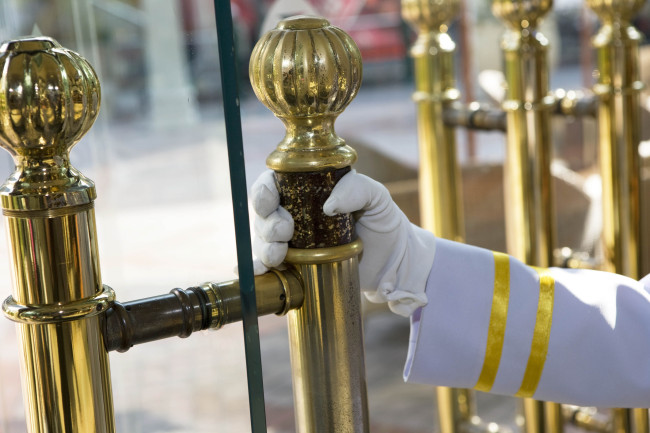A day in the life of a Manhattan superintendent

In our "day in the life" series running this week, we check in with the men and women who keep New York City's rentals, co-ops, and condos safe, clean, and secure, and who ought to be on most everyone's tipping list. Today, we speak to Peter Grech, a superintendent who works in a 350-unit building in Midtown East. Grech also serves as president of the New York Superintendents Technical Association (NYSTA) and has been in the business for over 40 years.
Every day is different
I started this work at 19, and have worked in eight or nine buildings in NYC. Each one was different.
There’s no such thing as a typical day. My usual routine is to wake up at about 6 am. The first thing that happens is the doorman calls me and tells me what's going on and gives me a quick rundown. By 6:30, I’m in the boiler room to do a system check. I have my morning cup of coffee with the boilers.
At 7 am, I go to my desk to look at work orders that may have come up over night. I meet with the porters and go over anything special for that day or anything they didn’t finish from the day before. At 8 am, I’m meeting with handymen, going over what they did yesterday and the work orders for today.
From 8:15 to 9:15, I’m in the lobby. As people go by, if they have something to say to me they can tell me then. Problems might include their tub draining slowly, they can’t close a window, a bathroom faucet is leaking, their windows are fogging up, there’s a leak under the kitchen sink, or they don’t have heat—all those things have come up in one day.
I walk the building from top to bottom at least two to three times a week, and there’s one staff member with me every time. We may concentrate on the stairwells and look at wallpaper for damages and repairs that may need to be made.
At 11:30 I have lunch. Every Tuesday, there’s a one-hour engineers' meeting. There are 17 apartments under renovation at the moment, so within a week we visit each apartment, go thoroughly over the renovations, and make sure they’re doing what they’re supposed to.
If someone moved in that day, I would welcome them and go through the apartment with them, showing them how to operate various equipment in the apartment.
I’m always answering emails and phone calls. It's very busy.
What you should understand about superintendents
Supers are human, too. We do make mistakes. We don’t know everything. Being on call 24 hours a day is not an easy thing. Although you're not working 24 hours, there’s always the thought in the back of your mind that something might go wrong. Whenever you go out somewhere, you’re thinking, "Gee, I hope nothing goes wrong." There's that, and also the pressure of living in the building. People don’t get it. At 8 o'clock at night, when I’m coming home from the grocery store, people stop me with problems, even though I’m not really on duty. But I never say I’m not on the clock.
The perfect tenants are the ones who have problems I can fix. I get the feeling that supers have been turned more into babysitters than what we used to be. Our job is more dealing with humans and psychology and the administrative end of the deal, rather than fixing something that’s broken. And the more modern the buildings, the more complicated they are with computers and sensors, and the less hands-on supers are, for good or for bad.
The benefits of being a super
I see children born, and I see them grow if I’m in the building for long enough. I see them go off to college and get married. It’s interesting. That's probably my favorite part—seeing kids grow up. That's how you know when you're getting old: [I see a tenant is] getting married and I remember her going off to kindergarten.
What you need to know about tipping your building staff
First, don’t give the same amount across the board. If there are people that did something extra special, and went out of their way—for example, when you were sick they called you to see if you needed anything—those staff members should be treated better.
The staff does trade notes, and they do keep records. They know what you gave last year and the year before. You should feel comfortable with what you give.
A good tip is considered $75 or more, reasonable is around $50, crappy is nothing or under $25. But it gets complicated when you have 50 people on staff. It becomes a strain. That's the other consideration, how many people are on staff. I do know building staff do look forward to additional money and they count on it. It's calculated into their budget—a very important item for them.
The takeaway
People should help their supers. Some other supers complain about nosy tenants, but I like that because they’re helping me do my job. If they complain about a problem before I discover it, it makes my job a little easier. If you see something, do let your super know—but think about how you deliver the information.




























